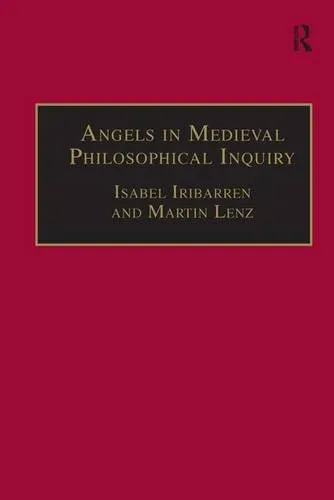Angels in Medieval Philosophical Inquiry: Their Function and Significance
4.5
Reviews from our users

You Can Ask your questions from this book's AI after Login
Each download or ask from book AI costs 2 points. To earn more free points, please visit the Points Guide Page and complete some valuable actions.Related Refrences:
Welcome to an insightful exploration into the ethereal realm of medieval philosophy with Angels in Medieval Philosophical Inquiry: Their Function and Significance. This book dives deep into the intricate and compelling role angels played in the philosophical discourses of the Middle Ages, offering readers a comprehensive look at their function and significance.
Detailed Summary of the Book
The book ventures into an era when the divine and the philosophical were intricately intertwined. In medieval thought, angels were not merely mystical beings; they were intellectual constructs that served to bridge the gap between the finite and the infinite. Throughout its pages, the book meticulously examines how medieval philosophers such as Thomas Aquinas, Duns Scotus, and Bonaventure utilized the concept of angels to navigate complex metaphysical, epistemological, and theological questions.
By exploring diverse perspectives, the book illuminates how these celestial beings were thought to mediate between God and humans, encompassing a wide range of roles from messengers and guardians to agents of divine will and sources of metaphysical explanations. The authors, Martin Lenz and Isabel Iribarren, expertly position angels within the medieval intellectual landscape, depicting them as both subjects of philosophical inquiry and instruments for addressing broader existential dilemmas.
Key Takeaways
- Angels served as pivotal figures in medieval philosophical discourses, blurring the lines between the material and the spiritual.
- Medieval philosophers engaged with the concept of angels to explore fundamental questions about existence, knowledge, and morality.
- The book highlights the diverse theological and philosophical interpretations of angelic beings throughout the medieval period.
- It underscores the enduring impact of angelology on later philosophical and theological development.
Famous Quotes from the Book
"Angels in medieval thought are more than mythic or religious figures; they are nuanced symbols that convey deeply philosophical ideas about the nature of the universe and humanity’s place within it."
"In the celestial dance between God and the cosmos, angels represent the interplay of divine wisdom and earthly understanding."
"To study angels is to study the medieval mind’s most earnest quest for understanding the divine and the esoteric."
Why This Book Matters
Angels in Medieval Philosophical Inquiry: Their Function and Significance is an essential read for anyone interested in the history of philosophy, theology, or medieval studies. This book not only provides an in-depth analysis of the role of angels in medieval thought but also highlights their lasting influence on Western intellectual history. By uncovering how these celestial beings were pivotal to medieval philosophical and theological inquiries, Lenz and Iribarren offer readers a unique lens through which to view one of history's most fascinating periods.
Furthermore, the book's exploration of the nuanced and often complex nature of medieval thought encourages readers to reconsider modern preconceptions about the capacity for philosophical inquiry in the medieval period. It reminds contemporary readers of the rich and intricate tapestry of ideas that characterized medieval intellectual life, providing a profound appreciation of the depths of human curiosity and the search for meaning in every age.
Free Direct Download
You Can Download this book after Login
Accessing books through legal platforms and public libraries not only supports the rights of authors and publishers but also contributes to the sustainability of reading culture. Before downloading, please take a moment to consider these options.
Find this book on other platforms:
WorldCat helps you find books in libraries worldwide.
See ratings, reviews, and discussions on Goodreads.
Find and buy rare or used books on AbeBooks.
1542
بازدید4.5
امتیاز0
نظر98%
رضایتReviews:
4.5
Based on 0 users review
Questions & Answers
Ask questions about this book or help others by answering
No questions yet. Be the first to ask!






